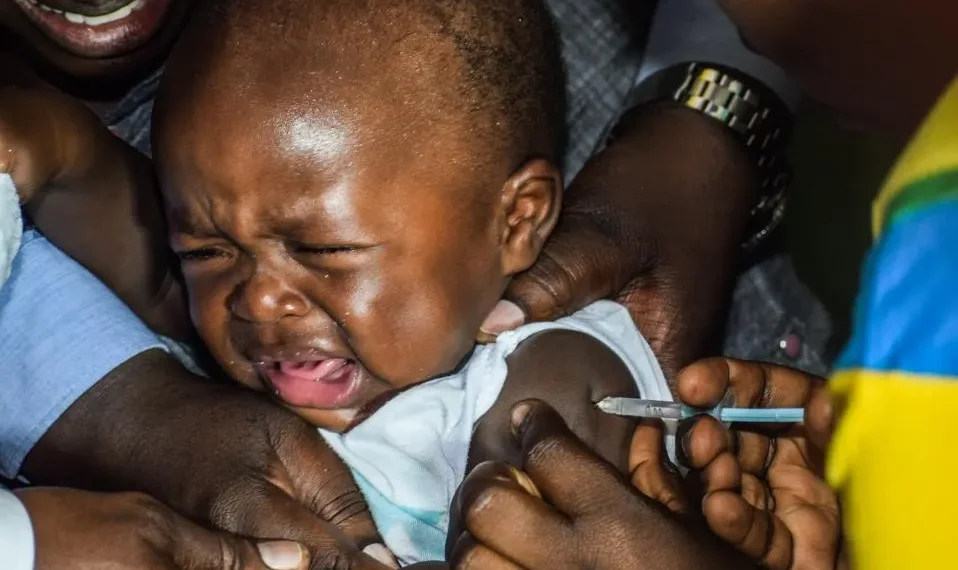Since 2019, Ghana, Kenya, and Malawi have been pioneering the rollout of malaria vaccines, marking a significant stride in the fight against malaria. Over 2.5 million children have already received at least one dose of the life-saving vaccine, demonstrating its effectiveness in protecting children from the deadly disease.
In 2024, more than 20 African countries are set to introduce the vaccine into their routine immunization programs, with Cameroon, Burkina Faso, Benin, Liberia, and Sierra Leone leading the charge. This expansion is expected to significantly increase access to malaria prevention and save countless young lives annually.
To support the broader introduction and rollout of the malaria vaccine, the World Health Organization (WHO), PATH, and other partners recently convened stakeholders from Nigeria, Guinea, Côte d’Ivoire, and Liberia in Accra, Ghana.
The gathering aimed to learn from Ghana’s successful malaria vaccination experience and prepare adequately for new introductions and rollouts across these countries. Participants, drawn from ministries of health, WHO, and UNICEF, also benefited from insights shared by countries that have already introduced the vaccines, such as Burkina Faso, Cameroon, and Sierra Leone.
Dr Frank Lule, the Officer-In-Charge of WHO Ghana said, “Having been delivering malaria vaccine to children across seven regions, Ghana’s experience and lessons will be key to the introduction and rollout of the vaccine in countries that are yet to introduce.”
The workshop covered various aspects of vaccine introduction, including risk communication, readiness monitoring, supervision, and data management. A field visit to malaria vaccination centers was also organized to provide participants with firsthand experience of Ghana’s vaccination process.
Additionally, Evan Simpson, Director of Vaccine Implementation at PATH, highlighted the value of exchanging information and experiences in achieving greater efficiency in reaching and vaccinating children. As Africa bears 94% of the global malaria burden, the WHO and its partners are bolstering malaria control efforts, with vaccines playing a crucial role in this arsenal.
In January 2024, the WHO Regional Office for Africa launched the Accelerating Malaria Vaccine Introduction and Rollout in Africa (AMVIRA) initiative to provide state-of-the-art technical support to Member States and enhance coordination at all levels.

The long-term impacts of the malaria vaccine on reducing malaria incidence and mortality rates in Africa are significant and multifaceted. The introduction and widespread deployment of a malaria vaccine, particularly the RTS, S Malaria vaccine effective against Plasmodium falciparum, the most common deadly malaria parasite globally, have the potential to substantially reduce the health burden in Africa.
Beyond the direct health benefits, the widespread use of a malaria vaccine could also have economic implications. By reducing the incidence of malaria, the vaccine could lead to savings in healthcare costs associated with treating malaria, as well as indirect savings through reduced absenteeism from school and work due to illness. These economic benefits could contribute to the broader economic development of African countries.
The workshop also addressed information gaps and shared lessons and best practices to ensure successful vaccine introduction and rollout in countries yet to do so. Participants, including Dr. Yao Kossia, Deputy Manager of the Expanded Vaccination Programme in Côte d’Ivoire.
Dr Garba Ahmed-Rufai, the Director for Disease Control and Immunization of Nigeria noted “What we have learned is programming in terms of the rollout, and the timing of the doses, and the lessons learnt. And knowing what the problems are from the other countries, we would just adjust accordingly, so that we can overcome all of that”.
Through the AMVIRA initiative, WHO is deploying experts in immunization, data management, risk communication, and external communication to assist countries in efficiently planning and delivering vaccines. This collaborative effort is poised to significantly impact the fight against malaria in Africa, leveraging the lessons learned from early adopters to ensure a successful and widespread rollout of the life-saving vaccine.
READ ALSO: MTN, Huawei Launch Joint Technology Innovation Lab to Drive Africa’s Digital Transformation




















